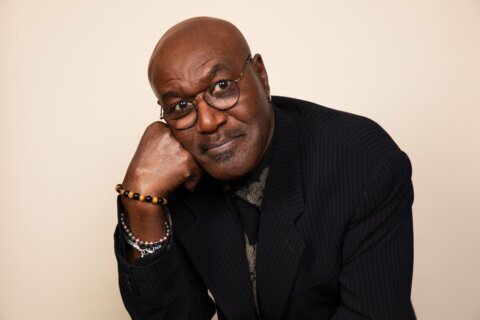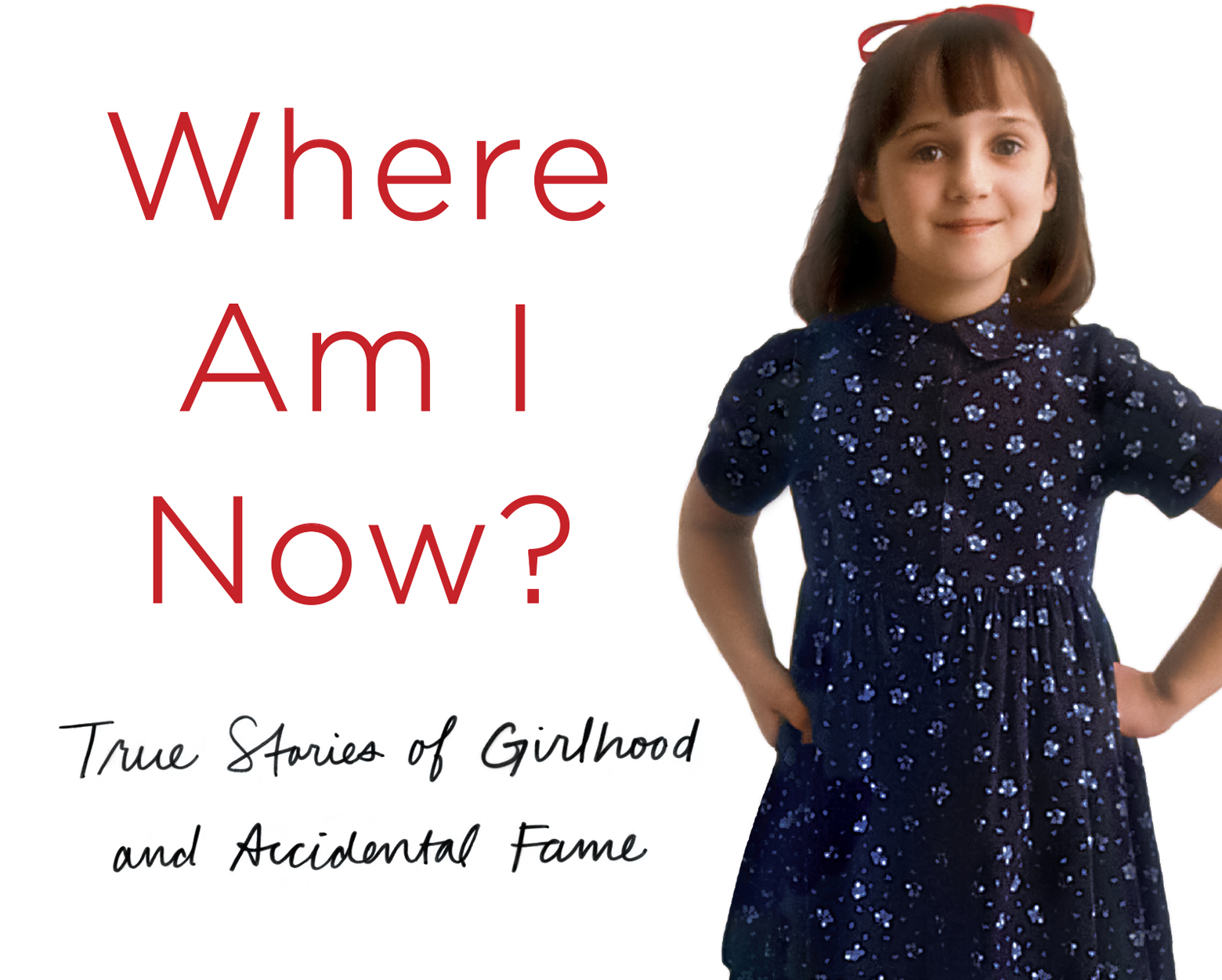
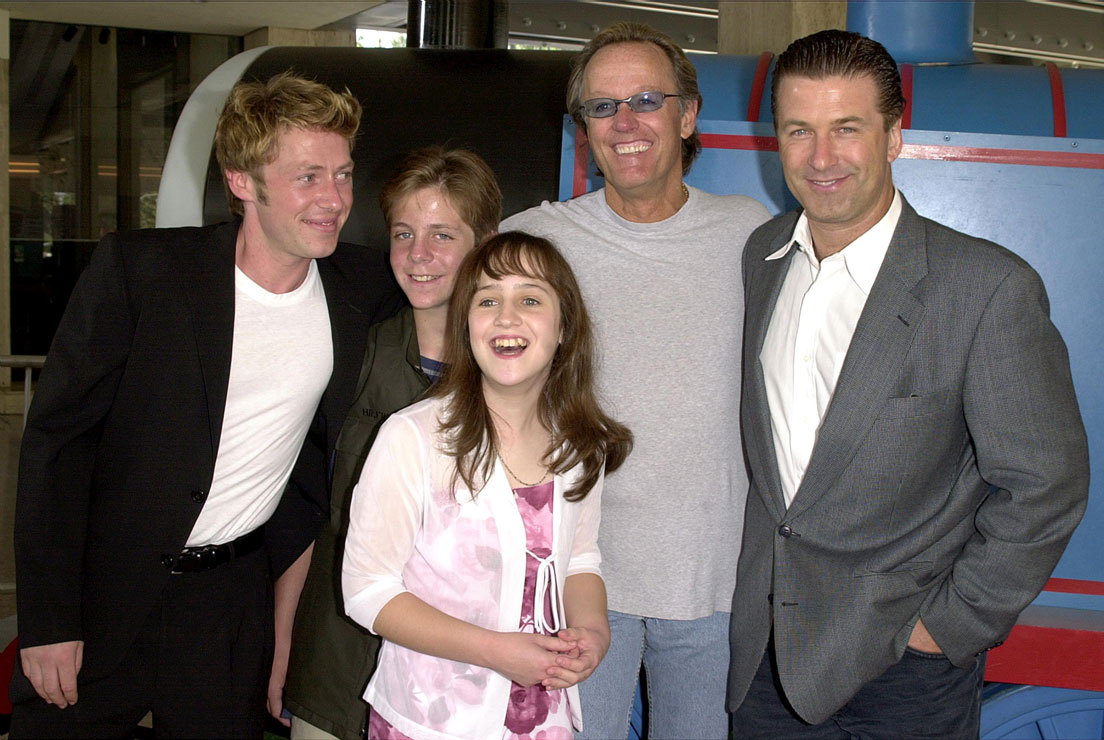
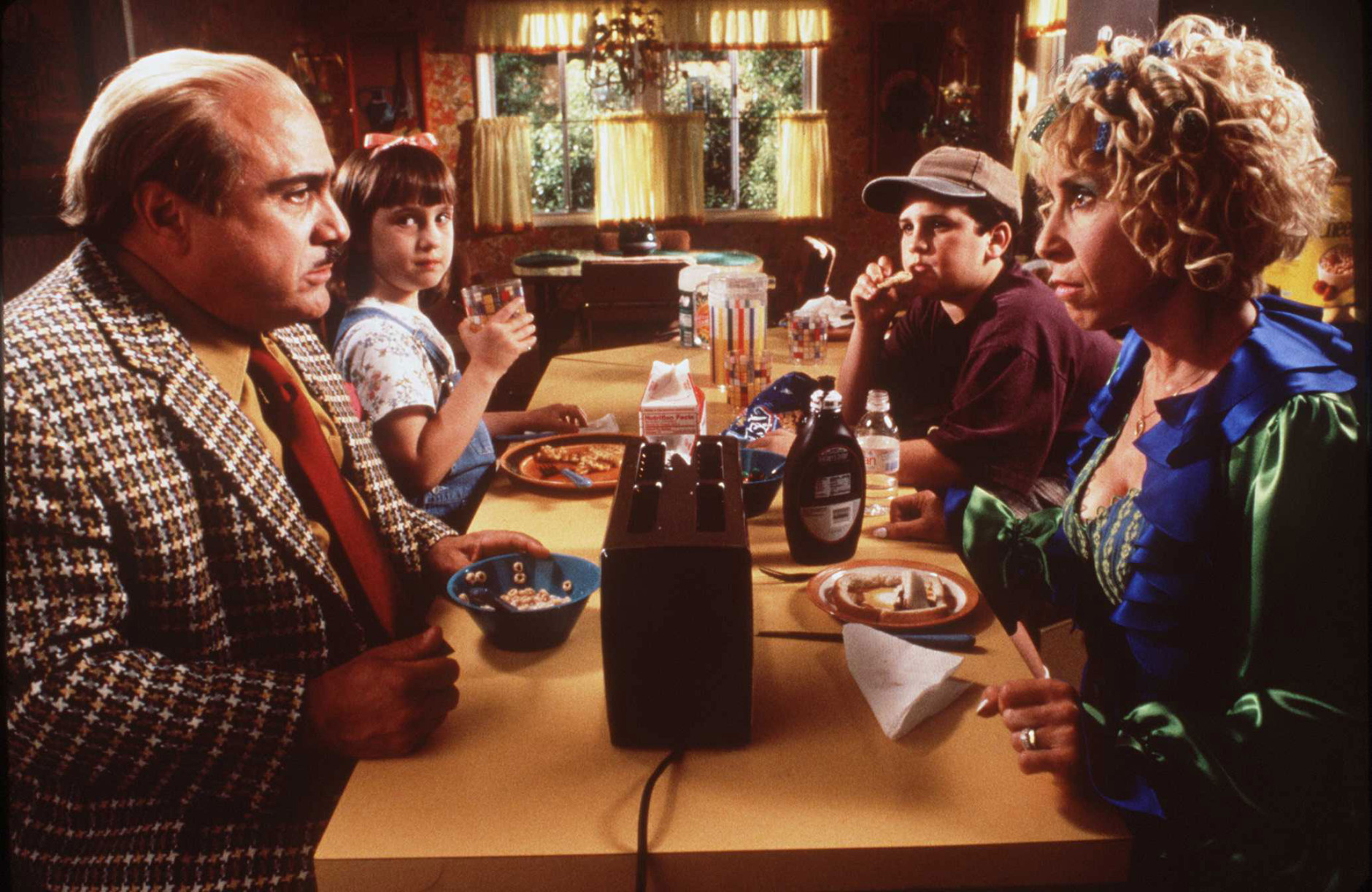
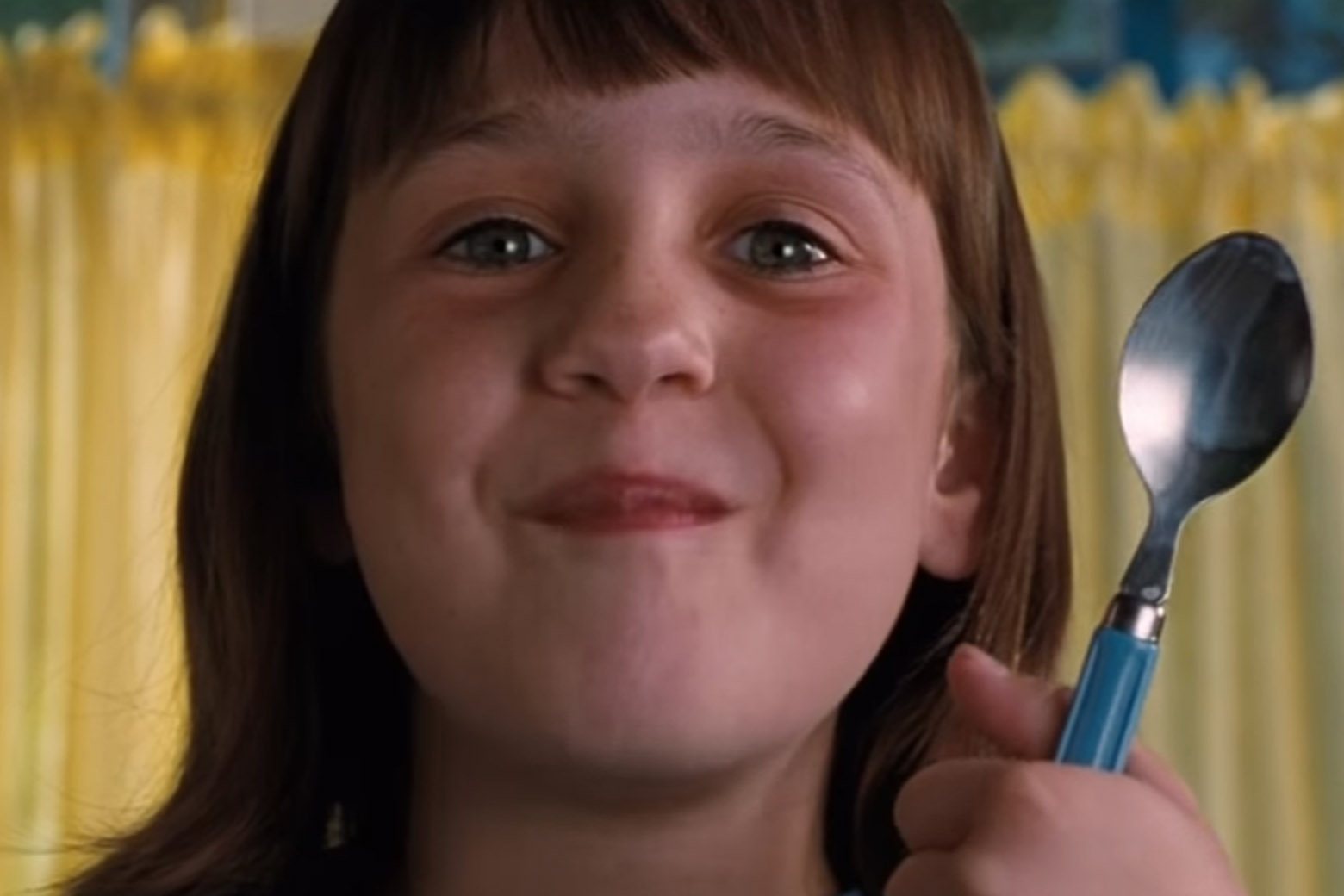
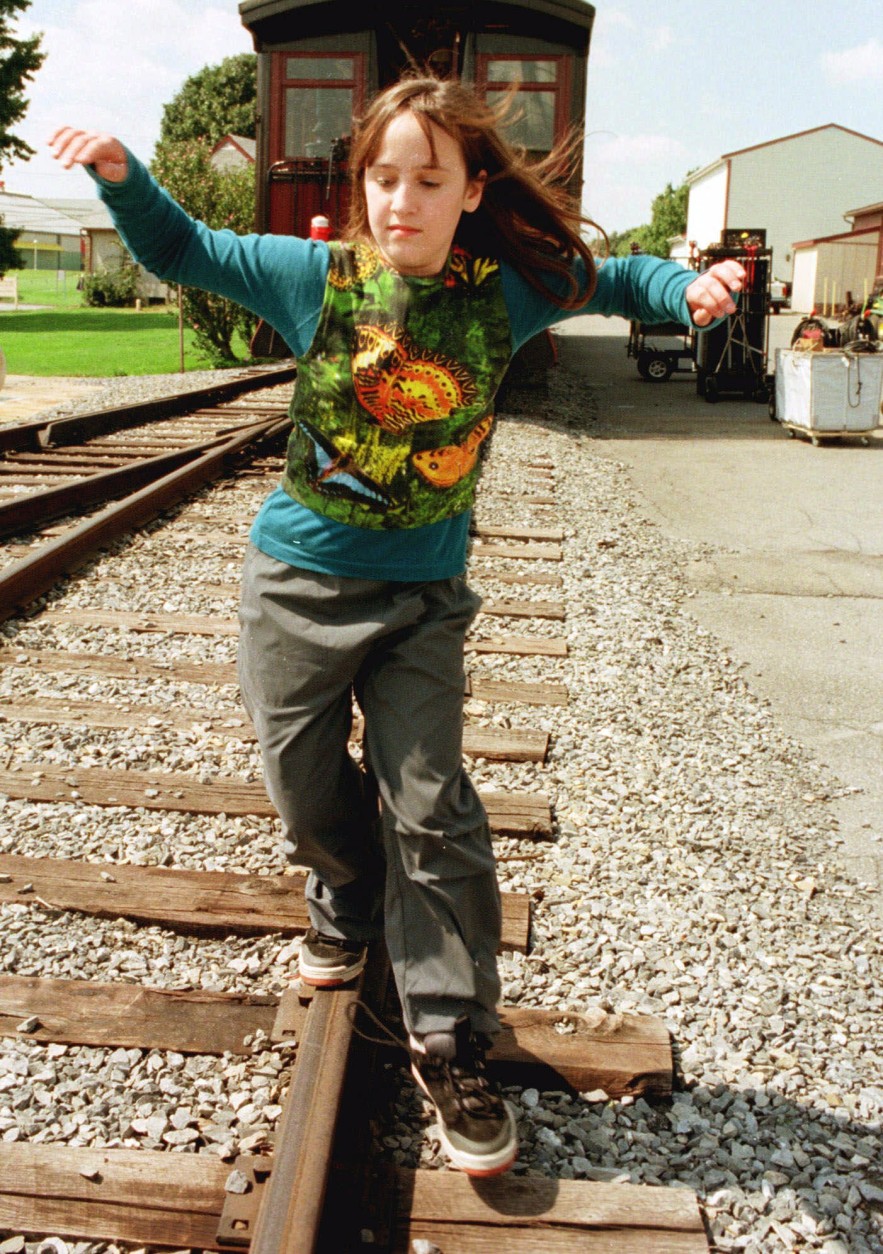
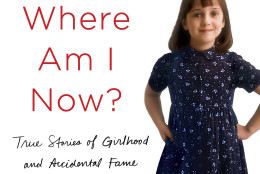
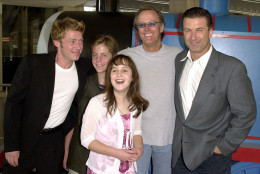
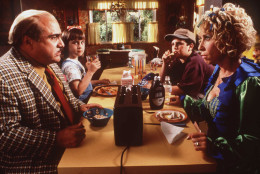
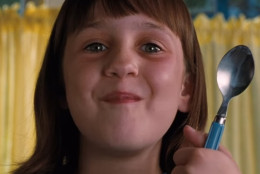

WASHINGTON — She was the epitome of adorable, sharing the screen with legends like Robin Williams in “Mrs. Doubtfire” (1993), Richard Attenborough in “Miracle on 34th Street” (1994) and Danny DeVito in “Matilda” (1996).
Now, Mara Wilson is sharing the dual-edged perks and pains of Hollywood child stardom in her new 259-page memoir “Where Am I Now? True Stories of Girlhood and Accidental Fame.”
“I’ve been writing for a few years,” Wilson told WTOP. “I studied playwriting and storytelling and autobiography writing in college. I’d written for McSweeney’s, I had plays in fringe festivals, I’d been writing for comedy websites like Reductress and Cracked. Then I wrote something about child stars that got a lot of attention, so I thought maybe it would be time to write about my own experiences.”
Wilson says it’s a chance to share her life story with a generation of fans who grew up with her.
“I had a very strong fan base, like a quarter of a million followers on Twitter,” she said. “There are people who wondered what happened to me. They’d say, ‘What happened to you? Why did you stop acting?’ I wanted to fill them in. I also wanted to pay tribute to the wonderful people I worked with.”
Born in 1987 Los Angeles, Wilson acted in commercials before getting her big movie break at age 5.
“You have to remember I was very young at the time, so I can only remember bits and pieces of being cast,” she said. “I had been in a few commercials already, and I remember coming home from school and hearing my mom on the phone saying, ‘I’m not sure, I don’t know if it’s a good idea. I guess we’ll do it, but I don’t think anything will come of it.’ She was telling me that I had been called for a movie.”
That movie was the blockbuster comedy “Mrs. Doubtfire” (1993), which became the No. 2 highest grossing movie of the year, behind only “Jurassic Park” (1993). It also won Golden Globes for Best Picture: Comedy and Best Actor: Comedy for Robin Williams, as well as the Oscar for Best Makeup.
Director Chris Columbus had experience with child stars after “Home Alone” (1990). Only this time, the plot combined two Dustin Hoffman flicks: the custody battle of “Kramer vs. Kramer” (1979) and the cross-dressing of “Tootsie” (1982). Wilson was cast as Nattie Hillard, the youngest daughter of a divorced mom (Sally Field) and dad (Robin Williams) who cross-dresses to spend time with his kids.
“They asked, ‘What would you think if your father dressed up like a woman?’ I immediately got this mental picture and said, ‘I would be on the floor!’ I thought it’d be really funny,” Wilson said. “I met this boy named Matt [Lawrence] and this girl named Lisa [Jakub] and I remember thinking, ‘I really hope I get this, but I really hope they get it too, because I really like them and I feel like they really could be my brother and sister.’ We all ended up getting it! I was amazed that my wish had come true.”
That wish was granted by the man she knew as the Genie from “Aladdin” (1992), not old enough to remember “Mork & Mindy” (1978), “Good Morning, Vietnam” (1987) or “Dead Poets Society” (1989).
“I wasn’t star-struck. I just thought he was a nice man,” Wilson said. “It was very easy because they were just so wonderful and relatable. Sally was very sweet and kind and would run lines with me and would just treat me like one of her children. The same with Robin. He was just so gentle and silly and so great with kids. I couldn’t have asked for a better introduction into acting than to have two co-stars like that who are both wonderful professional actors, but also so wonderful with children.”
These fond memories would prove to be extra precious after the cosmic comedy genius Williams tragically took his own life in 2014. Thirteen days later, Wilson also got news of the death of her “Miracle on 34th Street” (1994) co-star, the late Sir Richard Attenborough, who was a legend after starring in classics like “The Great Escape” (1963) and directing Best Pictures like “Gandhi” (1982).
“He was so kind and gentle and just so committed to his craft,” Wilson said. “He tried to have a little bit of magic. I remember saying I wanted a kitten as a holiday present, and he was like, ‘Really? Maybe I can make that happen.’ Just things like that! There did seem to be a kind of magic that surrounded him. He was just such an elegant, intelligent, kind man that you couldn’t help but look up to him.”
The film was, of course, a remake of the 1947 Christmas classic starring Edmund Gwenn, Maureen O’Hara and Natalie Wood that won three Oscars, including Best Screenplay for its original premise.
“I think I was a little bit nervous about living up to her, because I loved Natalie Wood,” Wilson said. “But yeah, I watched it with my mom. I hadn’t seen it before actually, because we were Jewish. So we didn’t watch a lot of Christmas movies. It really wasn’t that big of a deal for me to know [whether there was] a Santa Claus. But I did believe in the Tooth Fairy, so I definitely believed in things.”
This background gave her the perfect skepticism as young Susan Walker, tugging on Santa’s beard.
“It was definitely his beard,” Wilson said. “But that was my real reaction when I tugged it!”
While the film was a holiday family favorite, its box office was dwarfed by Tim Allen’s “The Santa Clause” (1994), as audiences preferred an original Christmas concept to the “34th Street” remake.
Even so, the role got Wilson cast as Matilda Wormwood in “Matilda” (1996), an adaptation of Roald Dahl’s book about a child prodigy who uses telekinesis to defy her oppressive parents and principal.
“There’s definitely a dark side to Roald Dahl’s work. He was somebody who experienced a lot of darkness in his life,” she said. “He caught onto something that children really like. Children like justice and ridiculousness. I remember reading his book ‘The Enormous Crocodile’ to my nephew, thinking he was going to find it scary, but he didn’t. He just laughed and laughed because the bad guys didn’t win in the end. Children love fairy tales. They’re OK with this darkness and [Dahl] picked up on that.”
Once again, the film allowed her to work with titans of Hollywood, including Danny DeVito (“L.A. Confidential”) and Rhea Perlman (“Cheers”) as her strict parents, Embeth Davidtz (“Schindler’s List”) as her loving mentor Miss Honey, and Pam Farris (“Children of Men”) as the sadistic Miss Trunchbull.
“Danny and Rhea were wonderful people,” Wilson said. “They felt to me like family, like an aunt and uncle. So nice, so kind, so giving, especially because my mother was very sick at the time. Embeth Davidtz was wonderful. She was so much like a big sister to me. But I think the real surprise would be Pam Farris, who played Miss Trunchbull, is one of the kindest, nicest, gentlest people I have ever met.”
Farris played a similar role as Aunt Marge in “Harry Potter and the Prisoner of Azkaban” (2004), the first “Potter” film without the aforementioned Columbus, who handed the reins to Alfonso Cuarón. Is it possible that Dahl’s “Matilda” primed the pump for audiences to embrace “Potter” shortly after?
“I don’t know if ‘Matilda’ primed people for ‘Harry Potter,’ but I do think there is definitely a similarity, especially if you look at the way the first book is written, it is very much like Roald Dahl,” Wilson said. “Magical boys and magical girls having powers. Everybody wants to imagine they have powers. The thing with Matilda and Harry Potter, you need to work at them, you need to learn how to use them.”
As for Wilson, she had to grow up quickly. Her mom died of breast cancer before the film’s release.
“It definitely affected my life. It affects my life every single day,” Wilson said. “I think it also affected my acting, because I think after that, acting didn’t seem as fun anymore. But at the same time, it was something of a constant in my life. So I had this kind of love-hate relationship with it where I needed it but I didn’t really like it anymore. I loved it, but I hated it. It was hard for me to get out of that I think.”
She was also forced to learn about sex on the set of TV’s “Melrose Place” (1992-1999).
“I knew the fact, but I didn’t know how adults went about [it] until I was on ‘Melrose Place,'” she said. “That’s very much an exaggerated portrait of what adult life is like, but I took it seriously. I thought this was an exposé. I thought there was journalistic integrity. So I was suspicious of adults after that.”
The sheen of child stardom was quickly wearing off, as it does for most young actors, save for a select few Natalie Woods and Elizabeth Taylors. As Wilson entered adolescence, she quickly learned that she was no longer “cute enough” by Hollywood standards, a superficiality she laments in the memoir.
“I definitely wasn’t cute by Hollywood standards,” Wilson said. “It took me a while to realize that, but when I did, I got the message loud and clear. I knew there really wasn’t a place for me in Hollywood. Hollywood is very much a numbers game; it’s very much about demographics, it’s very much about appearance. That’s just kind of the way it is and I don’t think it’s going to be changing anytime soon.”
Still, she considers her departure from Tinseltown a blessing in disguise.
“I was kind of forced out of Hollywood, but I was also a little burned out on it anyway, so I consider it something of a mutual breakup,” Wilson said. “It was definitely both of us.”
Since then, she’s moved to the East Coast, graduating from New York University’s Tisch School of the Arts, putting down new roots in Queens and reinventing herself as a writer. She now contributes to various publications and posts regularly to her creative-writing blog Mara Wilson Writes Stuff, not to mention penning her memoir: “Where Am I Now? True Stories of Girlhood and Accidental Fame.”
“My book is for anybody who has ever felt a little bit out of place,” Wilson said. “I have tried my hardest to take very unique and interesting experiences … and made them all universal. My book is for anyone who has ever felt a little young and a little out of place, and honestly, that’s most of us.”
Listen to the full conversation with Mara Wilson below:



